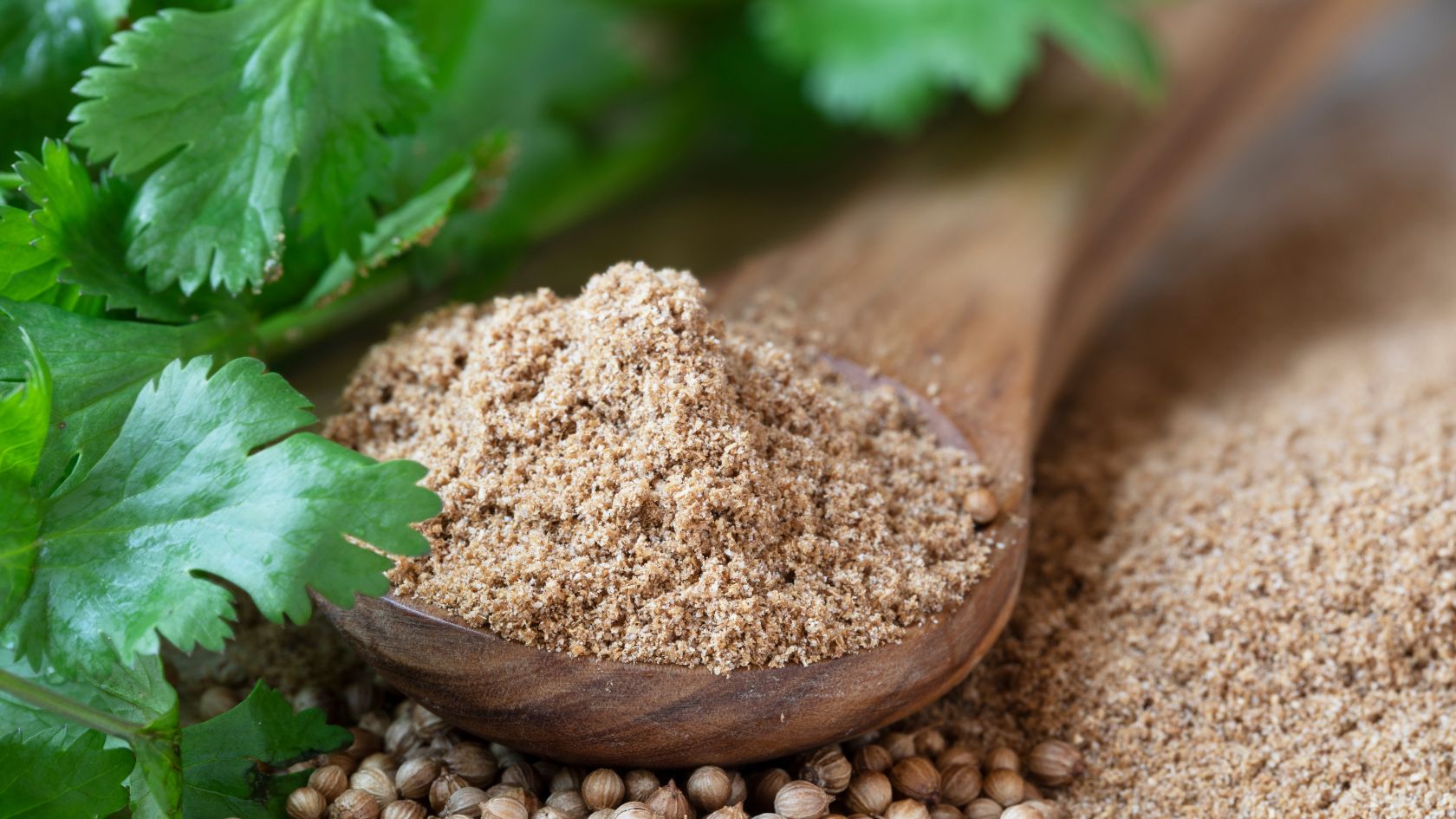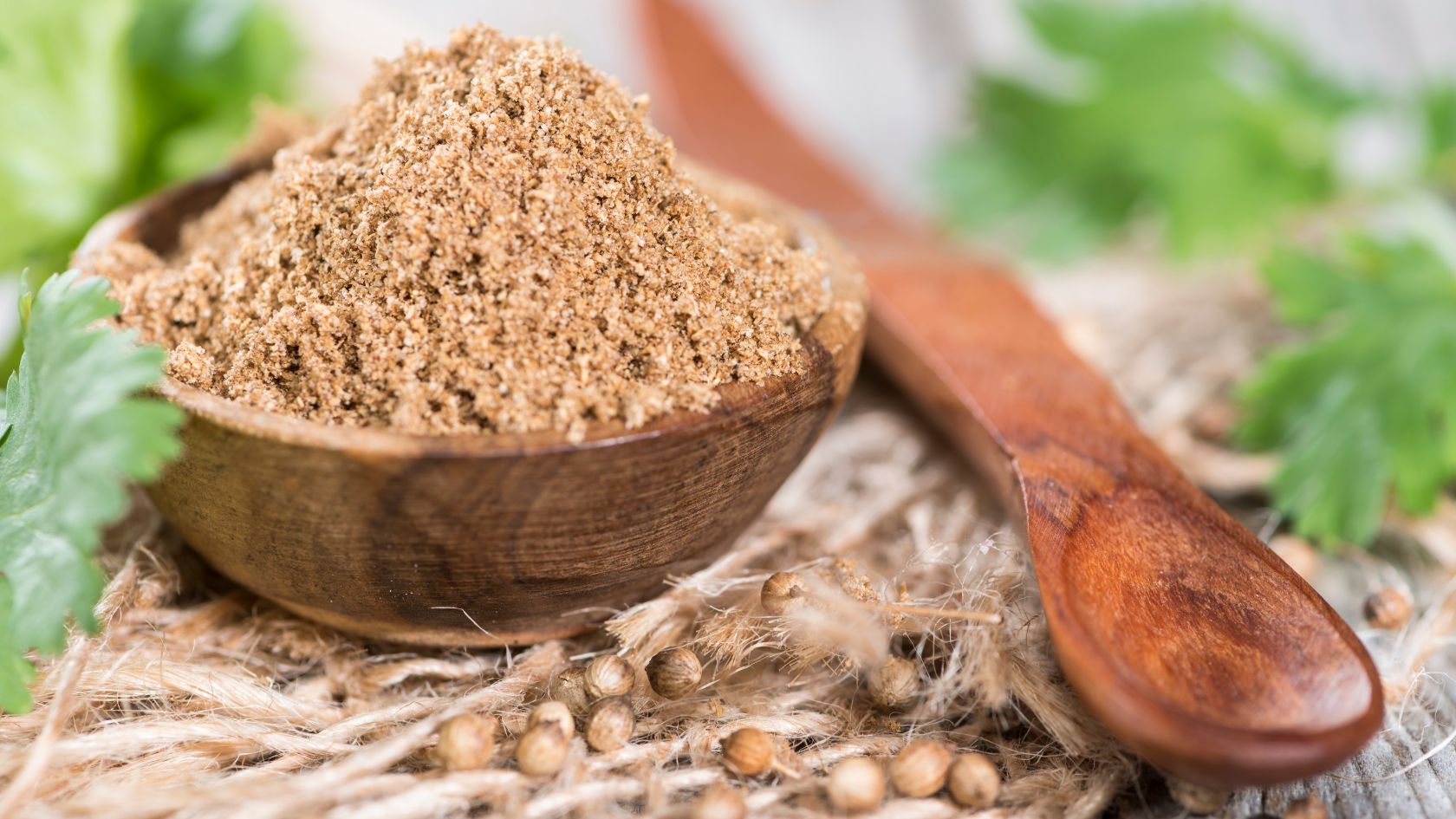8 SURPRISING HEALTH BENEFITS OF CORIANDER
Introduction to Coriander
Coriander Spice is an annual herb in the family of Apiaceae, also known as Chinese Parsley, Dhania, or Cilantro. Coriander is a fragrant, antioxidant-rich herb with culinary uses and health benefits. All parts of the plant are edible, but the fresh leaves and the dried seeds are the parts most traditionally used in cooking. Coriander leaves and coriander seeds are different in taste and texture. They can not be a substitute for each other in recipes.
Coriander has a long history of being used as both spice and herb. It was stated in sites dating back to 5000 BC and mentioned many times in ancient writings such as the Bible. Despite its name coming from the Greek word for stink bug, due to its characteristic aroma when crushed leaves come into contact with something else.

Using coriander is very different from cilantro because of its unique flavors and textures. Cilantro can be eaten raw or cooked with meat dishes or other cuisines like stir-fry and tacos. Coriander seeds typically need to be roasted before adding them to dishes, while ground coriander is used primarily as a seasoning for curries or baked goods.
All parts of coriander are edible, although they may vary in taste. Coriander seeds have an earthy flavor when warmed, and the leaves have a citrus-like aroma. You can make a paste from pureed coriander leaves with garlic, peanuts, and lemon juice in burritos or salsa dip. Consuming coriander lowers blood sugar levels while boosting immunity.
At Alcoeats, you will find Coriander Spice, which is easy to cook, healthy, and delicious. You can rely on it to make your dishes fragrant and delicious.
8 Health Benefits Of Coriander

Disclaimer- This blog does not provide you with any medical advice. It is strictly meant to be an informational and recipe blog only. Please consult your physician or medical expert on what works best for you.
- May Help Lower Bood Sugar- Coriander seed, oil, and extract may all help lower blood sugar. Studies suggest that coriander seed extracts reduce blood sugar by promoting enzymes that break down sugars within the bloodstream. People with low blood sugar with diabetes medication should exercise caution with coriander because it lowers blood sugar.
- Rich in Immune-boosting Antioxidants- Coriander seeds contain antioxidants that protect cells from damage caused by free radicals. Antioxidants in coriander also reduce inflammation and slow the growth of cancer cells. In a test-tube Study, antioxidant extracts from coriander seeds were to decrease inflammation and inhibit tumor cell proliferation.
- Some May Benefit Heart Health- Some Studies suggest that coriander may lower the risk of cardiovascular diseases such as high blood pressure and bad cholesterol. It has been observed that when taken in enough quantity, coriander extract acts as a diuretic, aiding the body to flush excess salt and water, which consequently lowers blood pressure.
- May protect brain health- Coriander powder contains antioxidants linked to reducing inflammation in the brain, improving memory retention, and reducing anxiety. A mouse study showed that coriander has the potential for Alzheimer's patients.
- May promote digestion and gut health- Oil extract from coriander seeds may help speed up and promote healthy digestion. A Study found that when participants took 30 drops of an herbal medication containing coriander three times a day, it significantly reduced abdominal pain, bloating, and discomfort.
- May fight infections- Coriander has antimicrobial properties that can fight certain infections or foodborne illnesses. Studies suggest that coriander oil in antibacterial products fights against hospital-acquired infections and diseases.
- May protect your skin- Coriander powder may benefit people with sensitive skin, such as dry or irritated patches. Studies show that the antioxidants in coriander extract can help prevent cellular damage leading to premature aging, sunburns, and other skin damage.
- Easy to add to your diet- All parts of the Coriander plant are edible, but its seeds and leaves taste very different. While coriander seeds have an earthy flavor, the leaves are aromatic and citrus-like, though some people find they taste like soap. You can add the whole seed to baked goods or pickled vegetables; ground up, it can add a delicious kick to roasted vegetable dishes or cooked lentil dishes.
Summing Up On Health Benefits of Coriander

Coriander is a fragrant, antioxidant-rich herb with many culinary uses and health benefits. You can easily add coriander seeds or leaves to your diet. This cilantro may help lower blood sugar, fight infections, and promote heart, brain, skin, and digestive health.
FREQUENTLY ASKED QUESTIONS
Is it healthy to drink coriander water daily?
Consumption of Dhania water or Coriander seeds soaked in water first thing in the morning offers benefits for those with an overactive thyroid thanks to its high mineral content.
Does coriander have benefits for the kidneys?
Coriander is commonly used as a natural cleanser of the kidneys and has been known to improve one's general renal health. Coriander leaves contain essential compounds with strong diuretic and detoxification properties which can stimulate urine production while eliminating toxins from the body through urination.
Does Coriander Affect Sleep?
(Coriandrum sativum) is an herb that grows around the world. It serves many purposes, one of which includes its usage for helping people with anxiety disorders as well as insomnia.
Is coriander a blood thinner?
Coriander might slow down blood clotting. It is best to stay safe and consume the recommended amount for safety reasons.
Is coriander a detox?
Quercetin found in the leaves has been shown to speed up metabolism. Coriander water also makes for one of the best-known cleansing drinks out there.
Related Products
Related Articles
Blog Category

